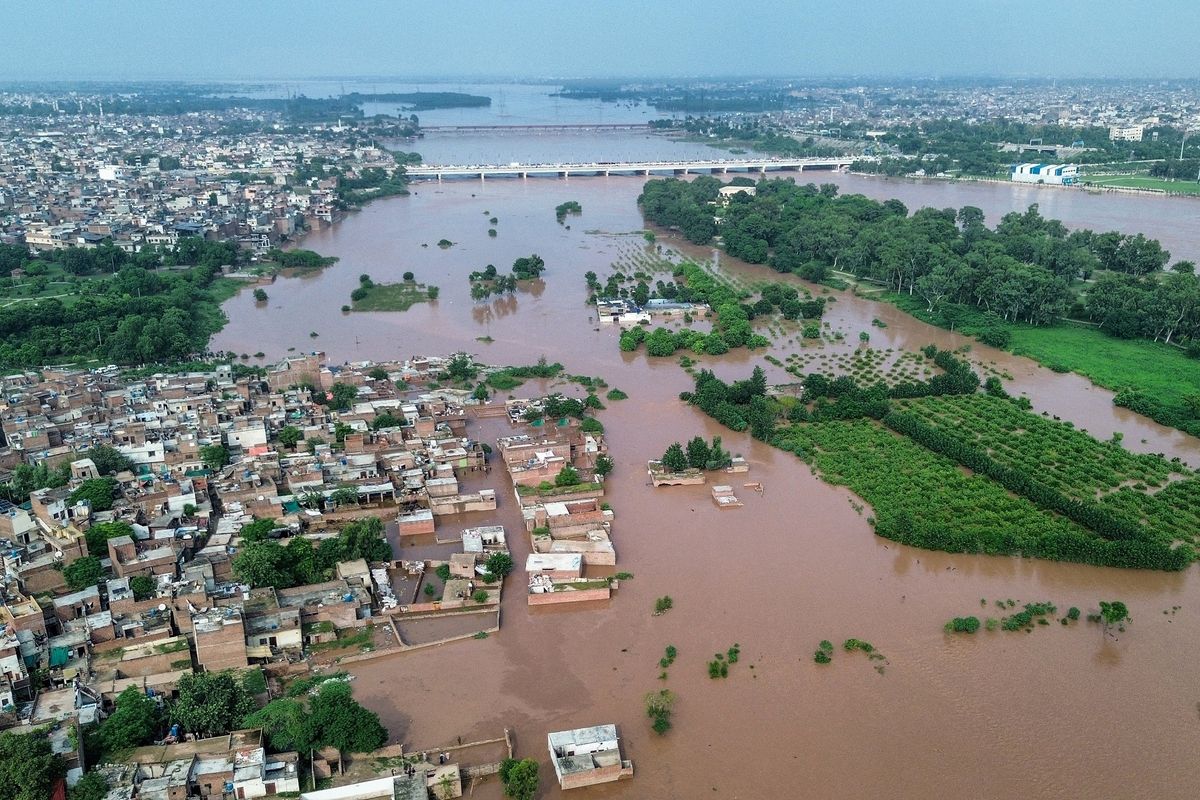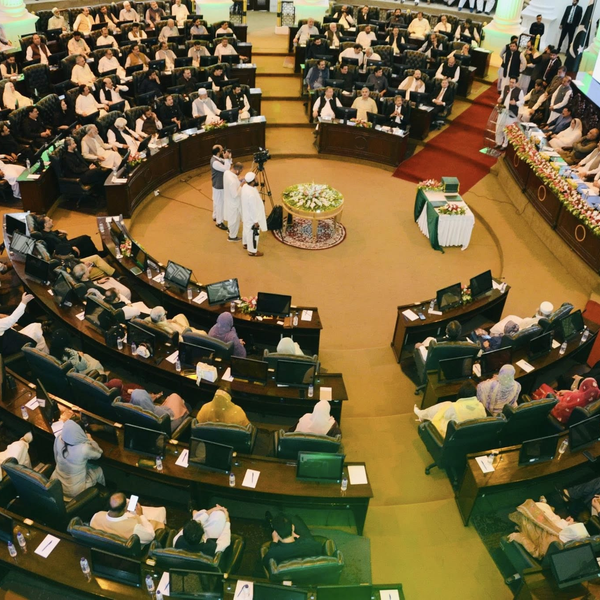Pakistan PM pushes for fast-tracking of dam projects to curb future flood risks
PM Shehbaz says the disaster underscores urgency of expanding the country’s water storage network
News Desk
The News Desk provides timely and factual coverage of national and international events, with an emphasis on accuracy and clarity.

As devastating monsoon floods submerge large parts of Punjab, Pakistan’s Prime Minister Shehbaz Sharif has called for the accelerated construction of major dam projects, including the Diamer-Bhasha Dam, to boost water storage capacity and shield the country against future climate-driven disasters.
The flooding, intensified by torrential rains in upstream catchment areas and the release of water from Indian dams on the Ravi, Beas, and Sutlej rivers, has engulfed more than 1,400 villages across Punjab, displacing 248,000 residents and affecting over 1.2 million people, according to the Provincial Disaster Management Authority (PDMA).
More than 148,000 livestock have also been relocated, while the National Disaster Management Authority (NDMA) has warned of further rainfall in Punjab, Khyber Pakhtunkhwa, Pakistan-administered Kashmir, and Gilgit-Baltistan.
Emergency relief camps with food and medicine have been set up, and officials say more than 150,000 people have already been moved from flood-prone areas - including 35,000 who evacuated voluntarily following early warnings. Videos circulating on social media showed floodwaters inundating the Kartarpur Gurdwara, a prominent Sikh temple near the Indian border.
The crisis deepened earlier this week when Pakistan reported that India had opened gates at the Thein Dam and signaled further releases from the Madhopur Dam, prompting authorities to issue “very high to exceptionally high” flood risk alerts for Lahore and other parts of Punjab.
Chairing a high-level meeting on Thursday, Prime Minister Sharif said the disaster highlighted the urgent need to expand the country’s water storage capacity, APP reported.

“Storage capacity is the need of the hour, and without wasting any more time, we should start work in this regard,” he stressed. The prime minister added that Pakistan must generate resources domestically to finance new reservoirs, warning that the country could no longer afford delays.
Sharif noted that the floods initially struck the northern regions but were now devastating Punjab’s plains.
Offering condolences to victims’ families, he praised the coordinated response of Chief Minister Punjab Maryam Nawaz Sharif, the NDMA, the Pakistan Army, and civil departments, saying this collaboration had helped contain losses. He also reminded officials of the 2022 floods, which devastated Sindh and Balochistan, warning that Pakistan remains among the world’s ten most climate-vulnerable countries.
Coordinated relief, long-term warnings
CM Maryam expressed sorrow over the loss of lives, crops, and infrastructure, but stressed that effective coordination had prevented deaths from negligence. She highlighted that timely evacuations had saved over 50,000 people and minimized livestock losses, crediting NDMA, PDMA, police, civil defense, and the Army for swift action.
Maryam also ordered urgent drainage of floodwaters from the Kartarpur Gurdwara and directed the deployment of 1,000 mobile clinics, field hospitals, and stockpiles of vaccines to flood-hit areas, prioritizing women, children, and the elderly. She noted that around 200 kilometers of roads had been damaged and instructed officials to restore temporary routes to maintain connectivity.
Reiterating the need for long-term planning, she emphasized expanding water storage infrastructure to reduce wastage and strengthen resilience against future floods.
Federal Minister for Planning Ahsan Iqbal echoed these concerns, saying Pakistan’s vulnerability could be reduced if weaknesses in disaster response were addressed. He pointed out that while Pakistan had suffered extensive damage, neighboring India had faced less impact due to stronger infrastructure.
Iqbal also urged agriculture banks to extend concessional loans to farmers so they could recover more quickly and regain self-reliance.










Comments
See what people are discussing